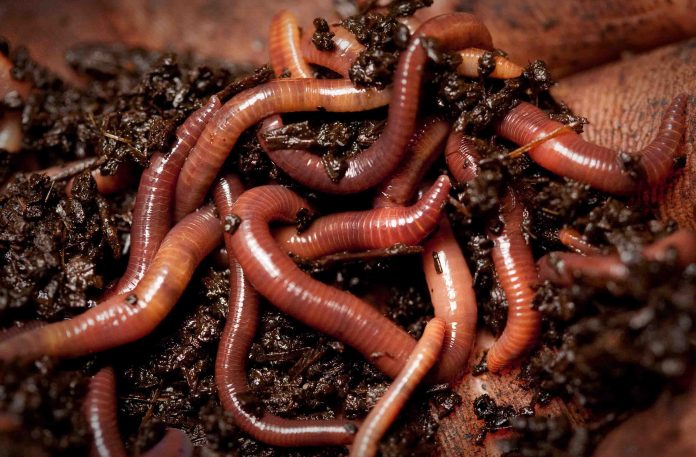So goes the old adage that if one were to give a man a fish, he will eat it then starve but give a man a dozen worms and he will go fishing for his own fish.
That might not be exactly the saying but when it comes to catching fish every time out, there’s nothing like a few worms for bait.
Nightcrawlers

You and I know it and so does Mark Burkey, the owner of the popular Marks Live-Bait and Tackle on State Route 14 between Ravenna and Streetsboro.
That’s where Burkey and about 10,000 slimy nightcrawlers spend their time in wait of the next worm-seeking angler.
It seems that no one really knows why fish — all fish, big, small and in between — like them but they do indeed crave them.
One person might say the reason is because worms smell and taste like crawdads.
Someone else would swear that worms remind fish of leeches, another unfounded guess for sure.
One thing we all know is that worms don’t live in water, so how in the heck do fish even recognize them as a blue plate special?
Burkey probably has his own theory but all the unfounded guesses take a back seat to the proven fact that fishermen love worms.
Big ones especially, tough ones, wiggly ones, lively and enticing ones.
Coming from afar
You’ve got to understand just how well-traveled bait shop crawlers are.
They are all grown and harvested in Canada, where raising and marketing what Canadians call dew worms is a major player in the country’s agricultural business.
Burkey said that many farmers raise worms as their primary crop.
They irrigate so not to rely on the whims of nature, replenish their dirt with the right worm stuff that grows them fast and plump, and harvest them by the thousands one by one, picked by the busy hands of workers.
Then, of course, there is the process of bedding them and prepping them for shipping to places all over Canada and the U.S., including Burkey’s bait shop.
They come in by the tens of thousands but go out by the dozen or in 500 worm flats.
It’s interesting to note than lots of crawlers head back across the border when state-side anglers head north with tackle and bait to Canadian fishing destinations.
Keeping them happy
Burkey is a big player when it comes to worms in and worms out. He keeps his stock healthy and happy.
He said, “If you want to keep worms, you have to replenish the dirt they thrive in, feed them and keep them cool so they kind of hibernate,” adding that most fishermen find the black dirt he keeps and sells worms in might stain the floor of a boat, so they use a small can or bucket of water to rinse them as they are used.
Burkey takes pride in his worms and anglers appreciate it. They want them big, juicy and lively, and that’s what they get, he said.
In-demand business
Burkey said that nightcrawlers sell year-round. Pet owners, especially turtle owners, buy them on a regular schedule to feed their pets.
When asked about prices, Burkey said that for the most part, worm prices have been steady for a number of years.
You can buy one worm for three dimes, a dozen for $3.50, or a flat of 500 for $60. You do the math.
The questions one should be asking is why can’t I just go out at night and grab up a few crawlers?
Great question, but be careful when the neighbor’s dog comes running, the widow down the street sees and calls the cops and all the nearby porch lights come on, which, of course, sends the worms diving for a hole.














Do you sell composting worms or earth worms?